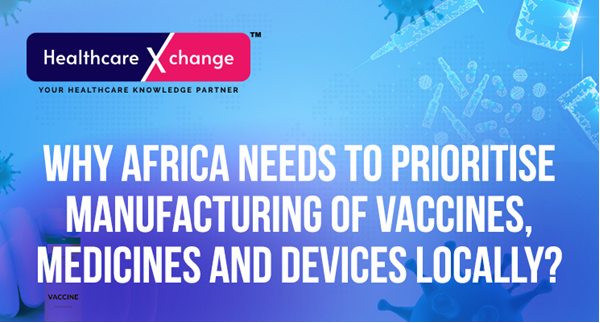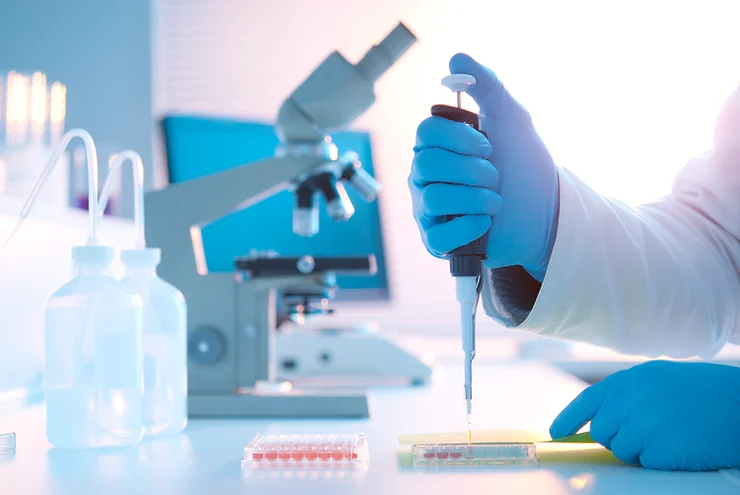
Why Africa Needs to Prioritise Manufacturing of Vaccines, Medicines and Devices Locally?
- Medical Equipment and Devices
- October 15, 2024
Highlights
-
Africa is dependent on imports for vaccines, pharmaceuticals and medical equipment to a high degree
-
The COVID-19 pandemic highlighted the continent’s lack of readiness to deal with health emergencies
-
Governmental, regulatory and regional initiatives are needed to boost local self-sufficiency in healthcare
Africa is home to approximately 17% of the global population while accounting for only 3% of total drug production. The COVID-19 pandemic brought to the fore Africa’s unpreparedness to deal with emergencies of a global scale and scope. The health crisis also highlighted the need to invest in local manufacturing and the lack of reliability of international supply chains.
Major healthcare exporters to Africa such as the U.S., France, China and Germany gave priority to local needs creating a medicines and equipment crunch in Africa. The pandemic also led to a surge in demand for diagnostic services and testing kits causing further bottlenecks in delivery of essential healthcare services.
The continent also has a heavy burden of vector borne diseases with more than 90% of global malaria-related deaths occurring in Africa. Moreover, 70% of all HIV cases originate on the continent.
Need for self-sufficiency
Africa currently imports nearly all of its vaccines (99% till February 2024) and up to 90% of pharmaceuticals as well as medical devices. About 650 drug manufacturing plants operate on the continent with Nigeria, South Africa and Egypt accounting for more than half of all facilities. The remaining facilities are spread across 29 countries with North Africa having the biggest share at 272. It means 25 countries do not have any local manufacturing capacity.
The medical devices segment is no different with more than 90% of healthcare equipment in hospitals, clinics and diagnostic centres originating from outside the continent. Additionally, complex diagnostic tools cannot be serviced locally amid a lack of technical expertise.
Similarly, only Egypt, Senegal, South Africa and Tunisia house vaccine manufacturing units on the continent. The situation is even starker when it comes to production of active pharmaceutical ingredients (APIs) with almost the whole of Africa dependent on Chinese exports.
Pharmaceutical business model
The majority of pharmaceutical business models are driven by generic-drug sales with products sold at low-costs to remain sustainable. The market rate for innovator drugs under patent protection is quite high and is often beyond local health systems’ financial capacity. However, local manufacturers do not possess the technical know-how to produce oncology drugs that are off patent for cancer treatment.
The road to self-reliance in healthcare faces significant obstacles from entrenched interests. Most African manufacturers have to navigate through a maze of legal and financial challenges before bringing to market any novel product or service. According to the African Vaccine Manufacturing Initiative (AVMI), the cost of constructing a single unit lies between USD 60 million to USD 300 million, with capital expenditure making up 60% of the total.
Technological and international regulatory hurdles too hamper innovation among small and medium-sized enterprises (SMEs) as well as startups. Local authorities are often ineffective with only 7% of regulators having the capability to enforce rules related to safety of medical products and protection of intellectual property (IP) rights. For instance, regulatory policies related to health and environmental safety need to be in place prior to setting up manufacturing units for specialised drugs such as chemotherapy-based medication.
Governmental support is vital
With the private sector playing a limited role in the healthcare industry, government intervention is imperative to boost local production. Governmental legislation needs to encourage multi-national companies (MNCs) to tie up with local firms as well as set up manufacturing units within the country. It would serve as a first step towards technology transfer and development of sustainable health systems.
Often, policies favour exports on account of foreign exchange accrual, inhibiting a company’s efforts to boost production for local consumption. For example, Ghana approves a pharmaceutical manufacturer to be part of a tax-free zone only if the firm’s exports cover 70% of total production.
Value of regional collaboration
Regional initiatives also have a role to play in contributing to self-sufficiency. For example, the Partnership for African Vaccine Manufacturing was set up in 2021 to boost self-reliance in vaccine production with at least 60% of local capacity till 2040.
The initiative brings together several pan-African organisations such as the Africa Centres for Disease Control and Prevention (CDC) and the African Medicines Agency (AMA) as co-convenors. Such measures illustrate the importance of regional coordination and partnerships among stakeholders to meet Africa’s healthcare needs.
The Localisation of Medical Manufacturing in Africa (LoMMiA) project is another measure that seeks to address the socio-political aspects of the global healthcare industry along with its technical features.




